Songs I Wish I’d Written: When You Smile
The Dream Syndicate’s “When You Smile” changed my life. That’s not hyperbole.
When the band’s debut album, The Days of Wine Roses, came out in 1982, I was a sophomore in high school in the Pittsburgh suburbs. My best friend and I spent most of our free time and almost all of our cash on comics and hardcore punk records at Eide’s.
We were there one Saturday morning to pick up the week’s comics. From the record section in the back of the store, Gregg Kostelich (who had recently started this garage band named The Cynics), put a record on the turntable.
The speakers throughout the store suddenly emitted an otherworldly, in-your-face electronic shriek. No buildup or fade-in: first it was quiet, then it was there. Fully formed.
I knew what accidental feedback from a guitar amp sounded like. This was different. This feedback howled and moaned, then swooped down three octaves to growl and roar. This feedback was no mistake, like the inadvertent bursts I’d created when I accidentally got too close to my amp.
But while it clearly wasn’t an accident, you could hear this feedback wasn’t under any kind of control, either: the guitar player clearly intended to make this noise, but it seemed less an act of creation than of unleashing, and damn the consequences.
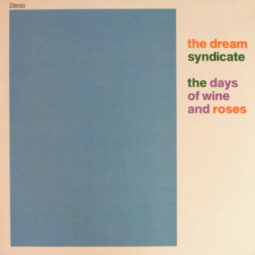 My buddy looked up from the rack of comics, visibly annoyed. “What is this?” he called back toward the record department. Kostelich just held up an album cover with a simple turquoise rectangle on a white background, and some brightly text alongside the rectangle. It looked like a jazz record from the 50’s or something, a far cry from the hardcore records I’d been fixated on over the past year or so.
My buddy looked up from the rack of comics, visibly annoyed. “What is this?” he called back toward the record department. Kostelich just held up an album cover with a simple turquoise rectangle on a white background, and some brightly text alongside the rectangle. It looked like a jazz record from the 50’s or something, a far cry from the hardcore records I’d been fixated on over the past year or so.
“It’s awful,” my friend declared.
Me? I immediately bought the album.
The Days of Wine and Roses was my gateway to a whole different facet of underground rock and roll, one that felt much more natural and appealing to me than the exciting but hypocritically dogmatic hardcore scene.
Hearing “When You Smile” for the first time was one of those tiny moments that marked a big change in my musical direction, and my immediate embrace of the record created a fissure in my relationship with my friend, with whom I’d been starting to write songs.
Musically, despite a great deal of common ground, our inspirations were diverging. I didn’t share his appreciation for the cold polish of Midge Ure-era Ultravox or acts like Icehouse. He didn’t share my affinity for the noisy, barely-controlled frenzy of The Dream Syndicate or The Gun Club. So while he joined The Long Afternoon for a few months, where I was going wasn’t where he wanted to go.
The first seconds of “When You Smile” drove me wild, and made me reevaluate what I’d thought was interesting guitar work. Check it out:
That feedback that opens the song is arresting, an unapologetic and challenging declaration of intent. Lead guitarist Karl Precoda coaxes and cajoles that force of nature for nearly a minute before bandleader Steve Wynn’s guitar enters, playing a simple three-note pattern. Wynn starts singing, in a voice that’s soft and conversational, like he’s explaining a regret to some stranger in a bar:
I dreamed last night I was born a thousand years ago
But when I woke up, I was lost with only one way to go
Now the second guitar pauses, as Precoda’s feedback achieves another climax. Then we hear the chorus for the first time, just Steve’s simple guitar and vocals complemented with Precoda’s feedback:
When you smile, I don’t know what to do
Cause I could lose everything in a minute or two
A title like “When You Smile” sets up a certain expectation, doesn’t it? It’s a title that could launch a million bland love songs. But the Dream Syndicate’s going somewhere else with this, a far darker place.
The second verse begins, with bassist Kendra Smith joining in:
It’s not fair to put you ‘gainst all of the years behind
‘Cause history kind of pales when it and you are aligned
If this is a love song, it sure isn’t the happy kind. This is dark obsession. This is being so into another person that everything else stops mattering…that the wrong facial expression can change everything.
When the chorus comes around again, drummer Dennis Duck joins in, and he and Kendra Smith establish a loose but propulsive groove. Suddenly, Precoda’s feedback transforms into something closer to a conventional lead, but not flashy: he stays completely in service to the song, uninterested in showing off. And now the chorus adds its final, brilliant line:
When you smile, I don’t know what do
‘Cause I can lose everything in a minute or two
It seems like the end of the world when you smile
Now Wynn’s guitar becomes more rhythmic, and Precoda’s feedback a little more restrained as the third verse begins, and if you expected uplift, you’re listening to the wrong song:
Well there ain’t lived a man who was anything more than bones and sack
But it doesn’t take much to hold the possibilities back
Another run through the chorus, and then Precoda delivers a solo. It’s simple and noisy and sloppy and dissolves into more glorious feedback at several points. It’s magnificent. No one plays guitar like Karl Precoda does on this album.
I’m not alone in my admiration for Precoda: the great Rick Johnson from Creem magazine glowingly referred to Precoda’s guitar as “The Thing That Can’t Be Stopped,” which is a perfectly apt description. Precoda’s guitar is slow, and thick, and lumbering—and undeniably powerful. Both in terms of tone and technique, it’s a total rejection of all the hair-metal crap that most “serious” guitarists aspired to at the time.
The first howling seconds of “When You Smile” make it plain that all that show-offy widdly-wah guitar shit doesn’t even exist in whatever sonic universe Precoda came from; hearing him play made me want to eliminate it from mine, too. After “When You Smile,” I stopped trying to learn how to play stuff “right” and started learning to treat my amps like instruments themselves.
That’s an ongoing process.
But back to “When You Smile.” I’ve adored this song from the first time I heard Precoda’s feedback squeal out of the speakers, and I still do, 30 years later. Precoda largely abandoned music for a very successful career in academe after the second Dream Syndicate album, and good for him. The Dream Syndicate continued, and were good, maybe even great—but not the same band they were with Precoda and Kendra Smith, who also left the band early.
The approach that Wynn and Precoda employed throughout The Days of Wine and Roses remains one of my platonic ideals for how a two-guitar band should sound.
Our song “See You Around” on Regression is a pretty clear homage to The Dream Syndicate that made The Days of Wine and Roses, and I’m particularly happy with how my guitar solo on this one came out. It still ain’t Precoda, but nothing else is, either.
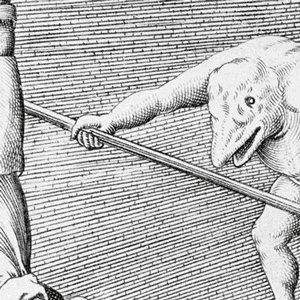


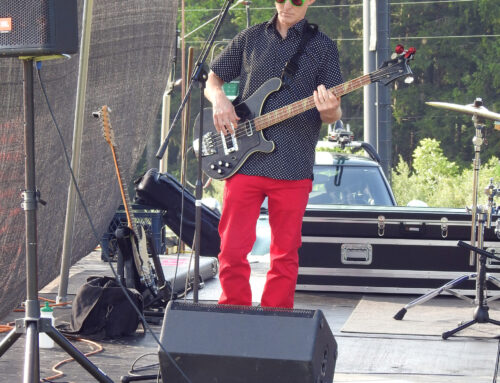
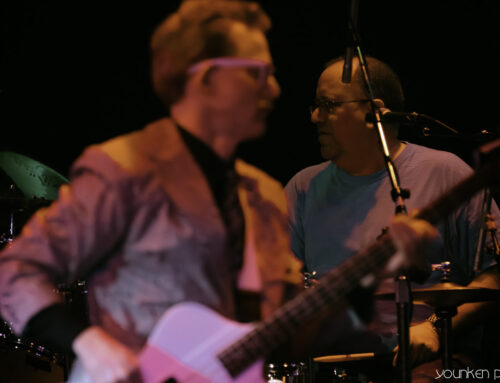
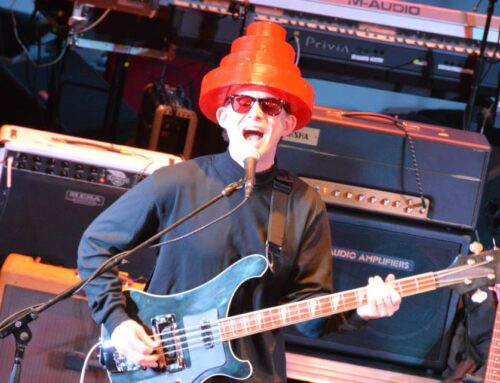
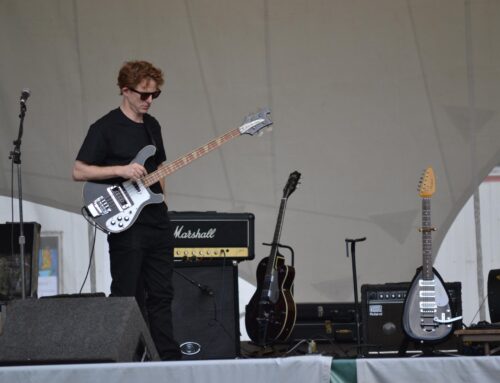
The Rainy Day record from the same period is great and I think it features one or two folks from the Syndicate.